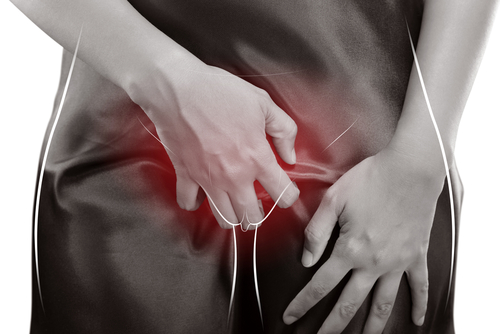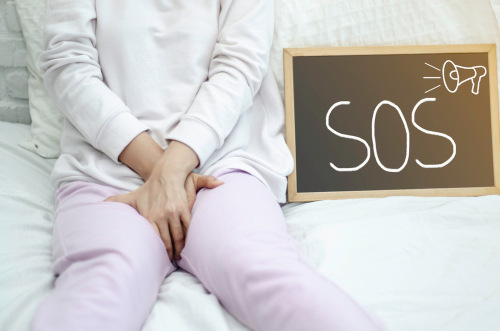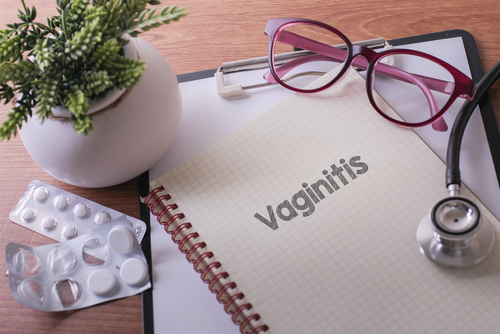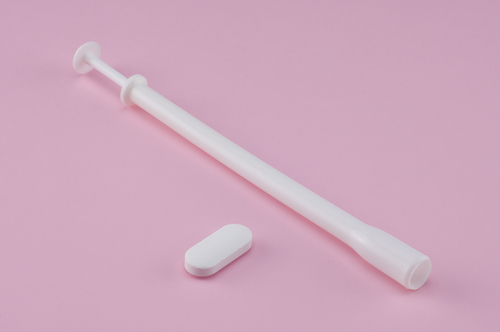
Menopause is a natural process that all women experience in their lifetime, yet it can cause changes to the vulva, vagina, and clitoris. During menopause, estrogen hormones decrease, affecting the skin’s elasticity or vaginal epithelium and leading to atrophic vaginitis—a thinning and inflammation of the vaginal walls. This can result in dryness, discomfort during intercourse, itching or burning sensations, and even urinary tract infections.
Women in menopause need to be aware of the different causes of vaginal and vulva soreness and itching. Hormonal fluctuations can decrease lubrication, which can cause irritation or even pain with intercourse. Other factors like stress, medications, and lifestyle choices like smoking can also contribute to these conditions. Additionally, a weakened immune system due to aging increases the risk of developing infections such as yeast or bacterial vaginosis (BV).
Vaginal and vulva soreness, itching, and an increased risk of yeast infections are common menopause symptoms. They are also known as genitourinary syndrome of menopause. Urinary symptoms like urinary frequency and urgency are often experienced in menopausal women. The vulva may also become more vulnerable as estrogen levels decrease. This can lead to increased vaginal area irritation due to friction from clothing, harsh chemicals, laundry detergent, fabric softeners, soap, or other materials. The physical, hormonal, and psychological changes that occur throughout this transition can often lead to these uncomfortable sensations.
In menopause, your clitoris can get smaller. This is because, like the rest of your vulva, it can get thinner and drier as your estrogen levels fall. This can affect how your clitoris feels, sometimes leading to pain or soreness rather than pleasure when stimulated.
Vaginal Menopause

Vaginal menopause can be a difficult time for any woman, especially when it comes to uncomfortable symptoms like vaginal itching and burning. These symptoms can range from mild to severe, but they all result in uncomfortable sensations that can make it difficult to go about everyday activities like sexual activity. Unfortunately, many women suffer from these symptoms due to the hormonal shifts associated with menopause.
Menopause is a natural stage of life for women, but the physical menopausal symptoms like hot flashes, night sweats, vaginal dryness, and weight gain, and emotional symptoms like mood swings that come with it can be hard to manage. For many menopausal women, vaginal itching and burning are common complaints. In most cases, these distressing symptoms are caused by atrophic vaginitis, also known as vaginal atrophy.
Atrophic vaginitis is an uncomfortable condition that occurs when the walls of the vagina become thin and dry due to a decrease in estrogen levels during menopause. As a result of this hormonal imbalance, inflammation and irritation occur in the area leading to symptoms such as itching, burning, discharge, and pain during sex. Although uncomfortable and often embarrassing to talk about, treatments are available to manage these unpleasant side effects of menopause effectively.
Lichen sclerosus is a chronic inflammatory skin disorder that most commonly affects women before puberty or after menopause. Lichen sclerosus is a chronic skin condition that can affect any body area, but it most commonly affects the genitals. Menopausal vaginal itching has been linked to lichen sclerosus in older women. This condition causes thinning and whitening of the skin, as well as itching and discomfort. It is thought that lichen sclerosus may be linked to hormonal changes associated with menopause, such as decreased estrogen levels.
The exact cause of lichen sclerosus is not known, however, research suggests it may be an autoimmune disorder where the body’s immune system mistakenly attacks healthy tissue. Symptoms of this condition include irritation and itching on or around the vagina, along with white patches on the vulva that can become painful and blistering if left untreated.
Vaginal Itching and Burning Causes: Estrogen Loss

Estrogen is a hormone that plays an important role in the health of the vagina and vulva. It is produced and secreted by the ovaries throughout a woman’s life, up until menopause. Estrogen regulates vaginal moisture, health, elasticity, and sensitivity. It also helps to promote healthy bacteria and maintain natural acidity levels in both the vagina and vulva.
With age and hormonal changes due to menopause, estrogen levels start to drop, which can cause dryness or thinning of vaginal tissue and the genital area. Vaginal dryness occurs because the vaginal lining stops making mucus. Vaginal thinning occurs due to a decrease in the production of collagen in the vaginal wall. This can make sex uncomfortable or even painful for many women experiencing these symptoms post-menopause. Therefore it is important for women to understand how estrogen affects their bodies so they can take steps to keep their vaginas and vulva healthy during this time of change.
Vaginal and vulva itching can be caused by a number of factors, but one of the primary causes is estrogen loss. This hormone is important in keeping the vagina healthy and lubricated and maintaining optimal pH levels. When estrogen levels decrease due to natural hormonal changes such as menopause or childbirth, the tissue walls in the vagina begin to thin and dry out due to a decrease in vaginal lubrication leading to irritation, pain with sexual intercourse, and itching.
Estrogen loss can also occur due to certain medications, such as anti-estrogens used to treat breast cancer or certain oral contraceptives that contain low doses of hormones. It can also be caused by medical conditions like hypothyroidism or diabetes, which can interfere with normal hormone production.
Causes of Menopause-Related Vaginal Itching and Burning
It is important to understand the possible causes of vaginal itching and burning during menopause to determine the best course of treatment. Common causes of this symptom include yeast infections, bacterial vaginosis, urinary tract infections, and vulvar pruritis. In some cases, vaginal bleeding may also occur as part of the symptoms associated with menopause.
Yeast infections are especially common among women going through menopause due to changes in hormone levels that cause increased moisture in the vagina and vaginal ph. Bacterial vaginosis occurs when an imbalance of bacteria inside and outside the vagina leads to inflammation and irritation, which can cause intense itching or burning sensations.
Treatments for Menopause-Related Vaginal Itching and Burning

Hormone replacement therapy (HRT) is one of the most effective treatments for menopause-related vaginal itching and burning. HRT helps restore hormone levels by replacing the hormones that decrease from hormonal changes during menopause. However, it may not be suitable for all women due to potential side effects associated with hormonal medications.
Vaginal creams containing estriol and estradiol are particularly helpful in restoring vaginal moisture, relieving burning and itching, and improving vaginal wall thickness and elasticity.
Natural Remedies for Menopause-Related Vaginal Itching and Burning
Natural oils, Aloe Vera gel, home remedies, and herbal supplements have all been known to help ease symptoms of menopause-related vaginal itching and burning.
Vaginal moisturizers like natural oils such as coconut oil can be used topically on the affected area throughout the day to provide relief from symptoms. Aloe vera gel can also be used to relieve dryness.
Coconut oil has many benefits for menopausal women because its anti-inflammatory and antibiotic properties can help reduce skin irritation caused by dryness or bacterial infections. In addition to coconut oil, colloidal oatmeal baths have also been known to soothe irritated skin. To do this, add one cup of colloidal oatmeal in warm water and soak for 15 minutes before patting yourself dry.
Herbal supplements are one possible solution some women use when seeking relief from vaginal itching and burning due to menopause.
Herbal supplements such as black cohosh, ginseng, red clover, and Dong Quai have been used for centuries as natural remedies for providing relief from the effects of menopause. These herbal supplements increase hormone levels in the body, which helps regulate bodily functions such as temperature and reproductive health. They may also provide some pain relief due to their anti-inflammatory properties.
A balanced diet rich in nutrients like iron, vitamin B6, vitamin E, zinc, and omega-3 fatty acids helps maintain a healthy pH level in the vagina, reducing itching and burning sensations. Additionally, limiting sugary snacks or processed foods that may disrupt the balance of bacteria within the body can also aid in reducing these symptoms.
It is important to speak with your healthcare provider if you are experiencing vaginal irritation, genital itching, and burning sensation. The good news is that these symptoms can easily be addressed by a doctor with hormone therapy and hormone vaginal creams or suppositories. A doctor can help you find the best treatment for your symptoms. Don’t suffer in silence any longer, and get help today!

